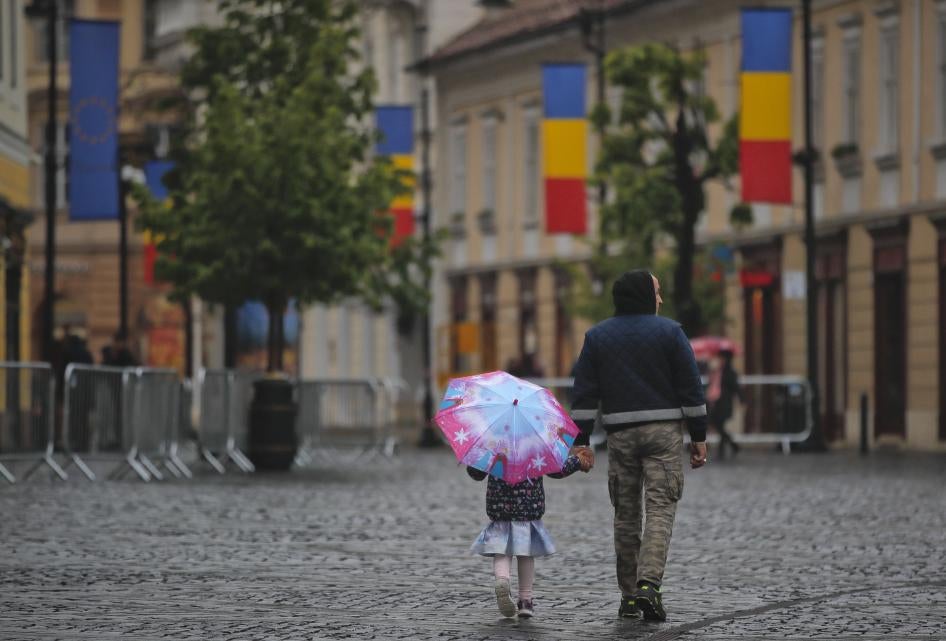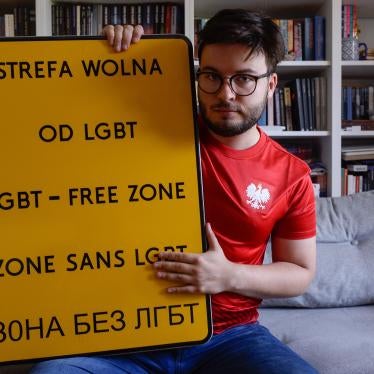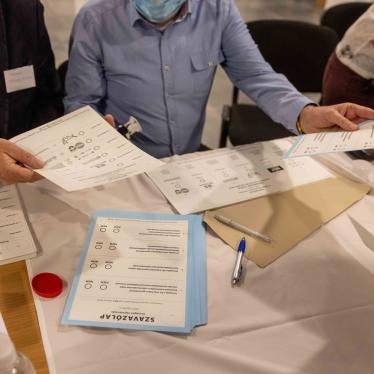Romania is considering a dangerous bill to prohibit educational materials that discuss homosexuality and gender transition.
In 2020, Romanian lawmakers tried to ban "activities aimed at spreading gender identity theory or opinion" in educational institutions.
The Constitutional Court invalidated that legislation, but lawmakers are again attempting to limit discussions of sex and gender, focusing specifically on children in schools. The senate has passed the bill, and it is awaiting a vote in the lower house.
Romania isn't the only country portraying lesbian, gay, bisexual, and transgender (LGBT) people as a threat to children. From Guatemala to the United States to Hungary, reactionary movements around the world are prohibiting portrayals of LGBT people and families in schools — and putting children at risk in the process.
When schools make LGBT topics taboo, children who identify as LGBT face shame and doubt and their peers learn hostility and intolerance.
History tells us that such restrictions cut children off from resources and support. In the United Kingdom, Section 28 — a 1988 law that said local governments could not "promote homosexuality" — chilled local government support for LGBT initiatives and fueled anti-LGBT harassment until it was repealed in the early 2000s.
Many teachers avoided messages of affirmation for fear of being punished or fired, and the law reinforced dangerous stereotypes.
Similar consequences have followed a Russian law that prohibits "propaganda of non-traditional sexual relations among minors." The law has had a tremendous chilling effect, leading to punishments for LGBT rights activists, and the closure of a support hotline and other resources for LGBT youth.
While these laws are motivated by homophobia and transphobia, they purport to rest on an unfounded belief that discussions of sexual orientation and gender identity are not age-appropriate for young children.
But many of the stories we tell children and the media they consume convey ideas about sexual orientation and gender identity.
Children are surrounded by animated movies that involve heterosexual romance, culminating in a kiss or a wedding, and fairy tales that not so subtly reinforce gendered norms, from an enterprising Jack climbing a beanstalk to Rapunzel growing out her hair so a prince can rescue her.
What lawmakers are really trying to do is to hide LGBT people from children. Right-wing activists and lawmakers in Hungary have even sought to restrict materials, like LGBT-inclusive fairy tales, that are specifically designed for young readers.
In Poland, lawmakers have aggressively targeted comprehensive sexuality education as part of their broader campaign against LGBT rights and women's rights.
Shame, bullying and torment
But that approach doesn't work. Many children around the world are being raised by LGBT parents, have LGBT siblings, or encounter LGBT friends and neighbours.
For children who identify as LGBT, prohibiting depictions of LGBT people sends a particularly damaging message that they should be ashamed of who they are. And predictably, some children will feel this tacit condemnation of being LGBT gives them license to bully and torment children who seem different.
In addition to their effects in the classroom, these laws have breathed new life into ugly prejudices that paint LGBT people as sexual predators. These toxic stereotypes demonise LGBT people, fuel homophobia and transphobia, and put LGBT people and their families at risk of harassment and violence.
When LGBT people speak out against these laws, proponents crudely brand them groomers and pedophiles, putting a bigger and even more disturbing target on their backs.
Rather than shying away from discussions of sexual orientation and gender identity in schools, lawmakers should affirmatively embrace them, and develop curricula that cover these topics in an inclusive, age-appropriate way.
And particularly in older grades, comprehensive sexuality education that is inclusive of LGBT children is essential to teach all young people to say no to unwanted sex and prepare them to be safe and healthy when they do become sexually active.
Lawmakers should recognise that these laws actively hurt children, cutting them off from information about the world around them and stigmatising LGBT young people. For their part, schools should fully support teachers who use inclusive materials and protect them from backlash.
LGBT issues don't have to be a source of controversy in the classroom, and Romania should not ban them. In the face of a global backlash in schools, affirmatively recognising the reality of LGBT lives is good for children, good for families, and good for the development of a more inclusive and rights-respecting society.








